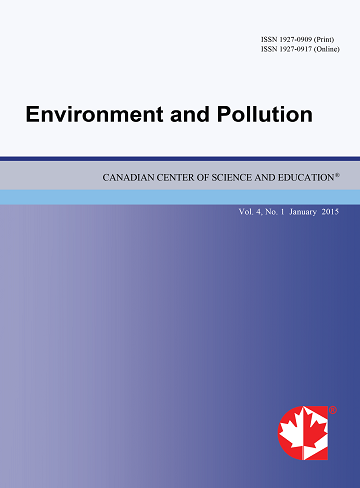Effects of Polycyclic Aromatic Hydrocarbons on Sexual Maturity of Atlantic Cod, Gadus morhua, following Chronic Exposure
- Rasul Khan
Abstract
Mature Atlantic cod, Gadus morhua, were exposed in an ambient flow-through sea water system to low concentrations of water-accommodated fractions (WAFs) of a crude oil for periods of 38-92 days to ascertain its effects on sexual maturity. Some exposed groups were depurated after exposure for 4 to 287 days. Minimal mortality but a greater percentage of skin and gill lesions and a reduction in weight gained, especially in females, occurred in the WAF-exposed cod in contrast to controls in summer-autumn. The WAFs also disrupted gonadal development and delayed spawning and spermiation although the fish were fed to satiation. Sexual development was also interrupted following exposure to the WAFs and depuration afterwards. These results suggest that polycyclic aromatic hydrocarbons in the water column can potentially disrupt reproduction in Atlantic cod and eventually affect inshore populations inhabiting the cold subarctic waters in Newfoundland and Labrador in event of a major oil spill from offshore wells or supertankers.
- Full Text:
 PDF
PDF
- DOI:10.5539/ep.v2n1p1
Journal Metrics
h-index (2017): 10
i10-index (2017): 11
h5-index (2017): 9
h5-median (2017): 15
Index
- Academic Journals Database
- Berkeley Library
- CAB Abstracts
- CAS (American Chemical Society)
- CNKI Scholar
- COPAC
- CrossRef
- DTU Library
- Elektronische Zeitschriftenbibliothek (EZB)
- EuroPub Database
- Excellence in Research for Australia (ERA)
- Genamics JournalSeek
- Google Scholar
- Harvard Library
- Infotrieve
- Jisc Library Hub Discover
- JournalGuide
- JournalTOCs
- LOCKSS
- Max Planck Institutes
- Mir@bel
- PKP Open Archives Harvester
- Pollution Abstracts
- Publons
- Pubmed journal list
- ROAD
- Scilit
- SHERPA/RoMEO
- Standard Periodical Directory
- Stanford Libraries
- UCR Library
- Ulrich's
- UniCat
- Universe Digital Library
- UoS Library
- WorldCat
- Zeitschriften Daten Bank (ZDB)
Contact
- Albert JohnEditorial Assistant
- ep@ccsenet.org
